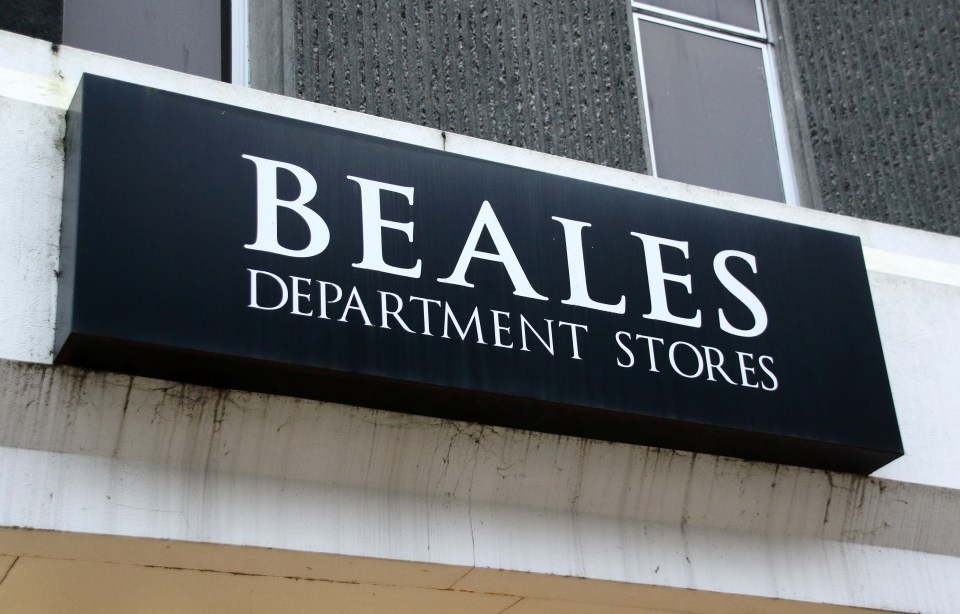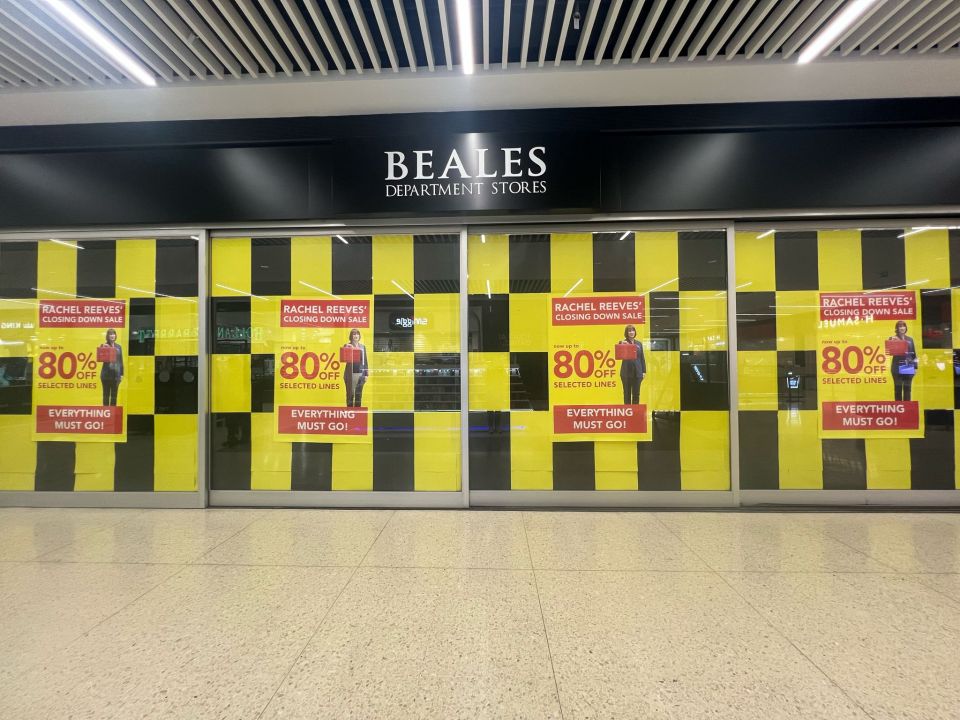Major building society to slash interest rates on 37 savings accounts in days
A MAJOR building society is set to slash interest rates on 37 of its personal savings accounts within days.
Newcastle Building Society is dropping rates on dozens of variable rate savings accounts from June 5.
It comes after the Bank of England (BoE) cut its base rate from 4.5% to 4.25% earlier this month.
The base rate is the rate charged by the BoE to smaller high street banks on loans, with any fall usually mirrored in savings rates.
Newcastle Building Society is reducing rates on the 37 personal savings accounts by 0.25 percentage points.
The Double Access Saver/ISA (Issue 4) will drop from 4.05% to 3.80%, for customers eligible for a bonus interest rate.
Meanwhile, the Newcastle Cash Lifetime ISA (Issue 3) will fall from 2.70% to 2.45%.
The Newcastle Junior Cash ISA will be cut from 3.75% to 3.50% and the Regular Saver Plus from 2.50% to 2.25% for anyone receiving the bonus interest rate.
Customers with fixed-rate savings accounts won’t see interest rates fall from June 5.
Interest rates on two variable rate savings accounts – the Loyalty Saver (Issue 1) and Quadruple Access Saver/ISA (Issue 1) – will also not change as they have only been available to customers since April 24.
You can view the table above to find out how the interest rate on your savings account has changed.
Or, you can visit www.newcastle.co.uk/savings/manage-your-savings-account/interest-rates and click on “Current and Closed Issue Variable Savings Interest Rates”.
The Sun asked Newcastle Building Society to comment.
MAJOR BANKS CUTTING RATES
A host of banks are reducing interest rates on savings accounts as the BoE continues to cut its base rate.
HSBC is cutting rates on eight of its savings accounts from June 3, and joins NatWest and Nationwide who are both doing the same.
Nationwide is cutting interest rates on over 60 savings accounts from June 1 including a number of ISAs and easy access accounts.
NatWest is also cutting rates on a number of accounts from the end of this month.
It comes after the BoE cut its base rate from 4.50% to 4.25% on May 8.
The central bank raises its base rate to discourage people from spending and encourage them to save, which in turn is designed to make inflation fall.
It lowers its base rate when inflation is under control, meaning people are encouraged to spend and pump money into the economy.
A lower base rate signals good news for those with mortgages who see the interest rates charged on them fall.
However, it’s usually bad news for those with savings accounts as banks slash interest rates.
If you’ve got a savings account with an interest rate set to drop, it might be worth shopping around for a better deal now.
Check out comparison sites like moneysavingexpert.com and moneyfactscompare.co.uk to browse the best out there.
According to Moneyfacts, Chip is offering the best rate on an easy access savings account, with a rate of 4.77%.
Meanwhile, the best easy access cash ISA is also with Chip and offering a rate of 4.99%.
Always look beyond just the headline interest rate on any savings account though.
Some offer additional perks which can make them more cost-effective and suited to you, based on your circumstances.
For example, some offer you access to free TV subscriptions or cheaper or free cinema tickets.
Different types of accounts pay out interest at different times too while others will offer a bonus interest rate which falls after a set period.
Some savings accounts penalise you for making withdrawals over a certain limit.
Meanwhile, ISAs can be effective for saving cash as any interest earned on them is tax-free.
Read more below about the different types of savings accounts and what they offer.
SAVING ACCOUNT TYPES
THERE are four types of savings accounts fixed, notice, easy access, and regular savers.
Separately, there are ISAs or individual savings accounts which allow individuals to save up to £20,000 a year tax-free.
But we’ve rounded up the main types of conventional savings accounts below.
FIXED-RATE
A fixed-rate savings account or fixed-rate bond offers some of the highest interest rates but comes at the cost of being unable to withdraw your cash within the agreed term.
This means that your money is locked in, so even if interest rates increase you are unable to move your money and switch to a better account.
Some providers give the option to withdraw, but it comes with a hefty fee.
NOTICE
Notice accounts offer slightly lower rates in exchange for more flexibility when accessing your cash.
These accounts don’t lock your cash away for as long as a typical fixed bond account.
You’ll need to give advance notice to your bank – up to 180 days in some cases – before you can make a withdrawal or you’ll lose the interest.
EASY-ACCESS
An easy-access account does what it says on the tin and usually allows unlimited cash withdrawals.
These accounts tend to offer lower returns, but they are a good option if you want the freedom to move your money without being charged a penalty fee.
REGULAR SAVER
These accounts pay some of the best returns as long as you pay in a set amount each month.
You’ll usually need to hold a current account with providers to access the best rates.
However, if you have a lot of money to save, these accounts often come with monthly deposit limits.
Do you have a money problem that needs sorting? Get in touch by emailing [email protected].
Plus, you can join our Sun Money Chats and Tips Facebook group to share your tips and stories




